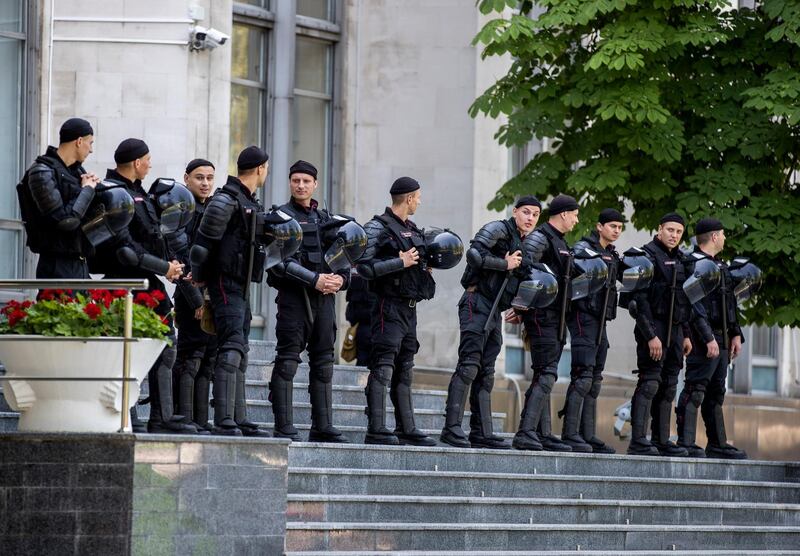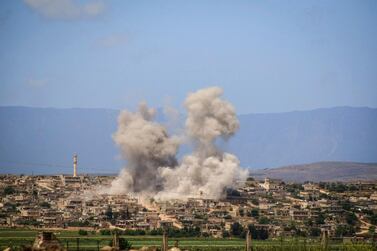Moldova slumped into political crisis this week after its top court sacked President Igor Dodon, raising the threat of violence on the streets of the tiny former Soviet republic.
Former prime minister Pavel Filip was appointed interim president on Sunday, and immediately called a snap election for September, spelling three more months of instability.
Moldovan politics has been stymied by deadlock since February, when Mr Dodon’s pro-Russia Socialist party won nationwide elections, but fell short of a majority.
Although the party agreed to form a coalition on Saturday with the third-place pro-Europe ACUM party – in order to keep tycoon Vladimir Plahotniuc and his Democratic Party out of power – the court ruled the Socialists had missed the June 7 deadline to form a government, and that Mr Dodon had neglected his duties by not calling fresh elections.
Mr Filip accused Mr Dodon of attempting a “coup”, as thousands of Mr Plahotniuc's supporters flooded the streets of the capital, Chisinau.
Meanwhile, Mr Dodon reacted with fury. “This is a desperate attempt to take advantage of the constitutional court in order to further usurp power,” he tweeted.
“The only way out is international and external mobilisation, pressure and firm resistance to the usurpers.”
Several parliamentarians in turn claimed Moldova’s fragile institutions had been “seized” by influential oligarchs.
“We call for calm and restraint. All sides bear responsibility for a resolution to this constitutional crisis by peaceful means,” France, Germany, the United Kingdom, Poland and Sweden said in a joint statement on Monday.
Crises of these kind are common in Moldova, which lies between Romania and Ukraine, and whose 3.5 million-strong electorate is split between pro-Russia and pro-western factions.
It reflects the many challenges facing former Soviet republics, caught in a geopolitical chess match and dealing with separatist movements. (Also on Sunday, hundreds were arrested in the former Soviet republic of Kazakhstan, in protests over an election they claimed was rigged.)
Special recognition for Transnistria – a breakaway region in eastern Moldova – had reportedly become a bone of contention in fraught coalition talks. Both the Socialist and Democratic parties have accused each other of answering to the Kremlin.
Today, Moldova is a strategic partner of the European Union and Nato. The former struck a deal with Chisinau in 2014, and has flooded the country with aid.
“We call on all political forces in the country to exercise calm and restraint and resolve their differences through dialogue, in full respect of the rule of law,” read a statement from Nato, which sees Moldova as a crucial bulwark on Europe’s eastern flank. The EU also called for calm and dialogue.
Moldova, one of Europe’s poorest nations, has drawn a reputation for corruption and instability, while Europe has expressed concern about its failure to implement reforms.
A major corruption scandal in 2014, when at least $1 billion was stolen from three banks, further eroded trust among both Moldova’s population and the international community.







